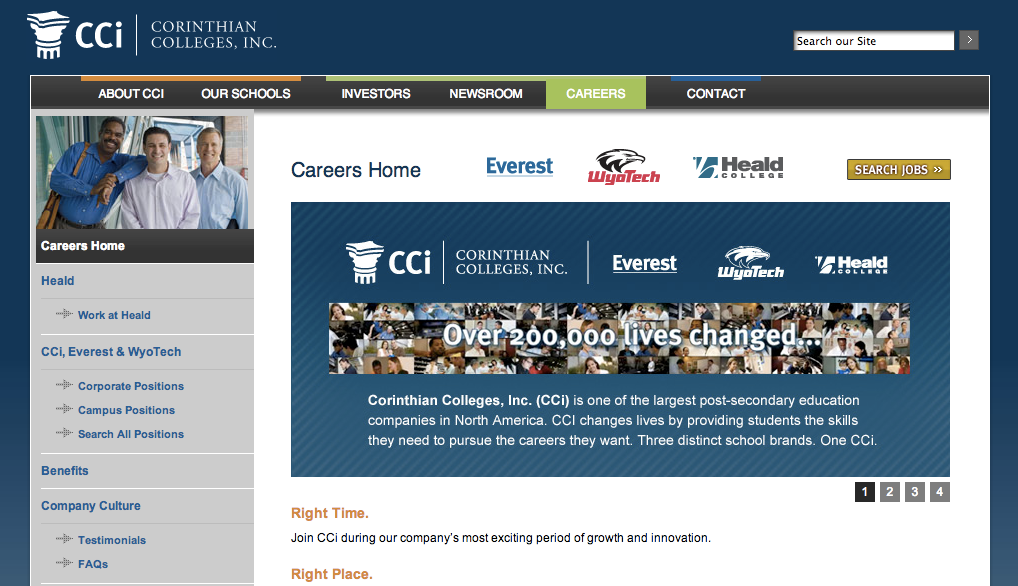Why You Shouldn t Get A Reverse Mortgage Just Because Fred Thompson Tells You To – Consumerist
Post on: 16 Март, 2015 No Comment

Image courtesy of
November 13, 2014 By Ashlee Kieler
Turn on the TV and youre just about guaranteed to come face-to-face with a celebrity or public figure selling a product or service. While those spokespeople may carry an air of respect and trust with consumers, what happens when the product they so happily lent their voice to turns out to have devastating affects on the consumer? Not much really, but it might be time for that to change.
The use of celebrities in commercials for payday loan networks, for-profit colleges and reverse mortgage lenders isnt a new phenomenon. In fact, consumer groups have warned of the dangers these types of products and their corresponding celebrity backers pose for consumers for years.
(For a flashback, check out the sidebar later in this story to see how sports legends like Terry Bradshaw and Dan Marino lent their names to questionable financial products nearly two decades ago.)
Tom Feltner with the Consumer Federation of America tells Consumerist that concerns regarding celebrity appearances in advertisements for financial products and services is just one portion of a larger problem regarding potentially predatory financial products.
I think that first and foremost the use of celebrity implies that consumers should have a certain level of trust regardless or not if that product suits a consumers financial situation, Feltner says. The endorsement of a product that has public trust raises concerns.
Christina Tetreault, staff attorney for Consumers Union tells Consumerist that the goal when using a celebrity is to have whatever goodwill consumers have about that particular public figure transfer to the product being sold.
This is typical in advertising, she says. But is worrisome when applied to financial services because some of the financial products that celebrities back such a payday loans can be dangerous traps for consumers.
So while a $3 tube of toothpaste you bought on the say-so of a celebrity may only last a few weeks or months in your home, the ramifications of taking on harmful financial products or services can last a lifetime.
Image courtesy of Jason Cook
Section Permalink Bookmark Section Share on Facebook Share on Twitter
Its not hard to understand why celebrities get hired, Suzanne Martindale, staff attorney for Consumers Union tells Consumerist. It makes the consumer more likely to be receptive to the sales pitch.
Additionally, Martindale says that marketers use famous faces to tap into viewers emotional attachments to celebrities and the characters they play.
The more you can prime the viewer to trust the person delivering the message, the more likely theyll trust the message, she says.
Former Senator Fred Thompson, a paid spokesperson for American Advisors Group: Reverse Mortgages, maybe more likely to evoke trust or nostalgia among seniors than an unknown, middle-aged actor because of his prominent political history and his work in movies and, most prominently, on the television show Law & Order .
Likewise, ads for the payday loan lead generator MoneyMutual tend to feed into its spokespersons history. Montel Williams, who hosted a long-running syndicated talk show, can often be found gracing the small screen for MoneyMutual during the same time of day his show aired, so its likely catching the eyes of his previous viewers.
The same could be said of the ads of for-profit college, Strayer University.
Comic Steve Harvey, who writes funny, bestselling self-help type books (which have been made into wildly popular movies) and currently hosts Family Feud. would be an attractive spokesperson to someone who might want to better their life through education.
Section Permalink Bookmark Section Share on Facebook Share on Twitter
While its highly debated whether or not consumers reception of a celebrity ad provides a high return on investment to the advertiser, there is some evidence that celebrity endorsements lead to bigger sale for companies. And even if the numbers dont back that up, executives around the world still believe strongly in the power of a famous name, which means the ads arent likely to go away anytime soon.
A report from researchers at the University of South Alabama and Florida Gulf Coast University found that the general belief among advertisers is that messages delivered by celebrities provide a higher degree of appeal, attention and possible message recall than commercials featuring non-celebrities.

Researchers concluded that celebrity advertising may be influential because celebrities are viewed as dynamic, with both attractive and likable qualities. Additionally, their fame is thought to attract attention to the product or service.
Three factors were found to be associated with the degree to which a celebrity advertisement is effective: source credibility, celebrity knowledge and trustworthiness, and celebrity appearance.
Of the three factors, celebrity knowledge and trustworthiness was of the most importance when it came to financial products or services being advertised.
Celebrity knowledge or expertise was defined as the perceived ability of a spokesperson to make valid assertions. When celebrity spokespersons were viewed as experts in the product category, they were more liked and more highly correlated with believability and trustworthiness.
That may be one reason why companies tend to use older, more well-known figures when advertising products such as reverse mortgages. And successful, well-rounded celebrities in payday loan and for-profit college commercials.
Celebrities who evoke a sense of trustworthiness when hawking a product are more likely to positively affect a consumers purchasing attitude such as if this celebrity is backing the product or service, it must be good enough for me.
According to a study [PDF ] by Harvard Business School associate professor Anita Elberse, a companys decision to use celebrity endorsers as an advertising strategy largely paid off in the form of brand-level sales. In fact, signing an endorser created an average 4% increase in sales, depending on the celebrity and product in question.
Although a 4% increase may seem rather insignificant, when a company brings in billions of dollars in revenue each year, a few percentage points extra translates into a hefty chunk of positive revenue.
Image courtesy of Tracy O
Section Permalink Bookmark Section Share on Facebook Share on Twitter














